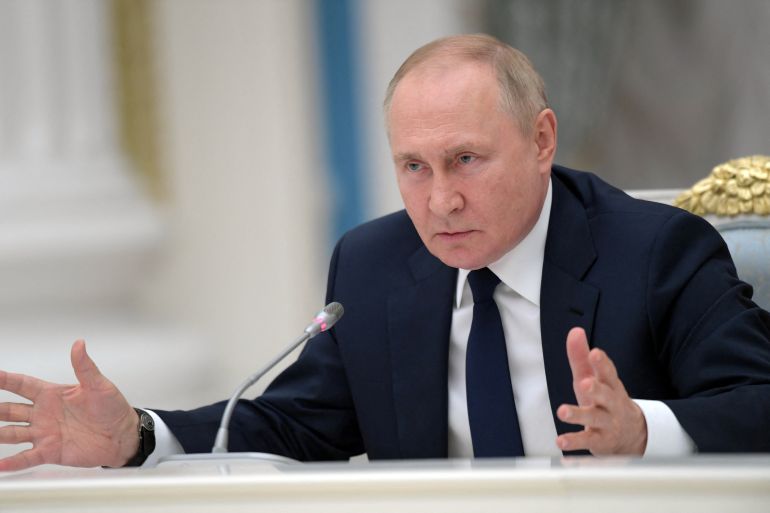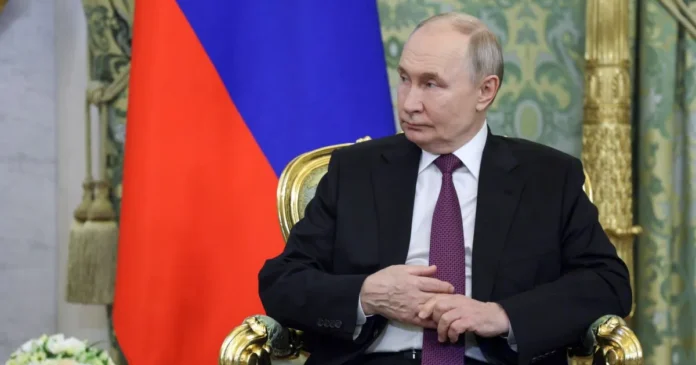Kremlin Confirms Negotiations on Hold
Russia has officially confirmed that peace talks with Ukraine are currently on hold, marking a major setback for ongoing international efforts to end the nearly four-year conflict. Kremlin spokesperson Dmitry Peskov told reporters on Friday that while channels of communication between Moscow and Kyiv remain open, “it is probably more accurate to talk about a pause” in active negotiations.
The confirmation comes despite a strong diplomatic push from Washington, where U.S. President Donald Trump recently hosted Russian President Vladimir Putin in Alaska. The meeting was widely seen as an attempt to secure a breakthrough in negotiations and bring about a ceasefire.
Trump Expresses Growing Frustration

President Trump, who campaigned on promises to swiftly end the conflict, has expressed mounting frustration over Moscow’s lack of progress on peace efforts. “It’s sort of running out and running out fast,” Trump said on Friday when asked about his patience with Putin.
The U.S. president warned that if diplomacy continues to stall, Washington may resort to stronger measures against Russia. Potential options reportedly include new sanctions targeting Russian banks and energy exports, along with increased tariffs.
Lawmakers Push for Harsher Sanctions
Pressure is now building on Capitol Hill, with several Republican senators urging the White House to authorize a vote on a new Russia sanctions package. The bipartisan proposal would penalize countries importing Russian oil, gas, and uranium in a bid to further isolate Moscow economically.
Republican lawmakers argue that a tougher approach is necessary to compel Russia to return to serious negotiations. Trump has not yet committed to signing the measure but has indicated that “nothing is off the table” if Russia fails to show progress toward peace.
Escalating Violence Threatens Diplomatic Efforts

Even as diplomatic talks remain frozen, the war on the ground continues to intensify. Last weekend, Russia launched its largest aerial attack since the conflict began, firing more than 800 missiles and drones at Ukrainian cities. The strikes killed at least five civilians, including a woman and child in Kyiv, and severely damaged a government building in the capital.
This week, tensions rose even further when Russian drones violated Polish airspace, prompting NATO forces to respond militarily for the first time since the invasion began in February 2022. Poland confirmed it had shot down 19 drones that crossed its border and subsequently invoked Article 4 of the NATO treaty, calling for urgent consultations with alliance members.
Dispute Over Meeting Location Stalls Progress
One of the biggest obstacles in resuming talks is the disagreement over where a potential peace summit should take place. President Putin has insisted any meeting occur in Moscow, a proposal flatly rejected by Ukrainian President Volodymyr Zelensky.
“I cannot go to Moscow while my country is under attack every single day,” Zelensky said in an interview with ABC News. “If Putin wants to talk, he can come to Kyiv.”
The Kremlin, meanwhile, has accused European nations of obstructing the peace process. Peskov claimed that European powers are hindering progress but did not provide specific examples. Moscow has also dismissed proposals by Western allies that involve security guarantees or NATO peacekeeping forces in Ukraine following a potential ceasefire.
Regional Military Drills Heighten Concerns
Adding to the growing tension, Russia and its ally Belarus launched large-scale military exercises near Poland’s border on Friday. The drills are being closely monitored by NATO members, who see them as a potential show of force meant to deter further Western involvement in the conflict.
With talks stalled, violence escalating, and geopolitical tensions rising, the prospects for a near-term resolution to what has become Europe’s deadliest conflict since World War II appear increasingly slim.
Sources: The Moscow Times

